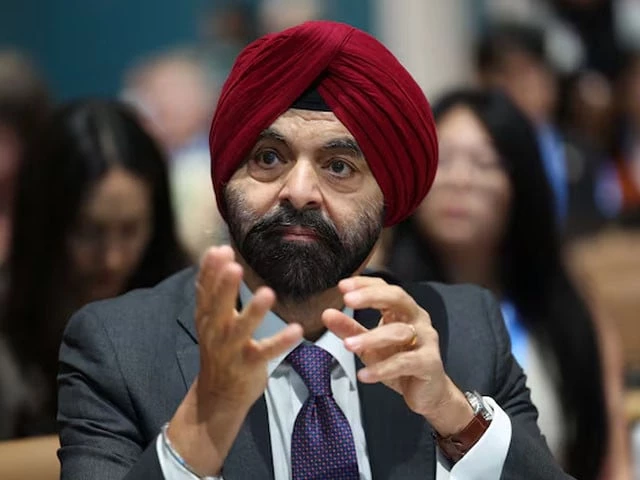Indus Waters Treaty cannot be unilaterally suspended: World Bank president
Pakistan formally responds to India’s recent communication regarding the Indus Waters Treaty

The Indus Waters Treaty cannot be unilaterally suspended or altered, World Bank President Ajay Banga said last week, emphasising that any changes to the agreement require mutual consent from both India and Pakistan.
In an exclusive interview with CNBC-TV18, Banga said the World Bank’s responsibilities are limited to administrative functions established at the treaty’s inception. He stated that the Bank plays no decision-making role in the Indus Waters Treaty and acts solely as a facilitator
“We have to pay the fees of those guys through a trust fund that was set up at the Bank at the time of creation of the treaty. That’s our role. We have no role to play beyond that,” he added. He noted that any amendment or suspension of the agreement requires mutual consent from both countries.
“There is no provision in the treaty to allow for suspension the way it was drawn up. It either needs to be gone, or replaced by another one, and that requires the two countries to want to agree,” he said.
Banga confirmed that the World Bank has not received any formal communication from either government regarding new developments.
"The Indus Water Treaty cannot be suspended without Pakistan's consent," World Bank's President Ajay Banga.
— MD Umair Khan (@MDUmairKh) May 14, 2025
Indian humiliation continues. pic.twitter.com/l9hmlftMsX
Meanwhile, Pakistan has formally responded to India’s recent communication regarding the Indus Waters Treaty, affirming that the agreement remains fully operational and binding on both parties, according to the Foreign Office.
In a statement issued on Wednesday, Foreign Office spokesperson Shafqat Ali Khan stated that Pakistan has made it clear that any violation of the treaty will be deemed unacceptable.
“The Indus Waters Treaty is a legally binding international agreement, and both parties are obligated to uphold its provisions,” he said.
FO spokesperson said Pakistan reiterated that it would continue to defend its rights under the agreement at all international forums.
Following the attack in Pahalgam, Indian Illegally Occupied Jammu and Kashmir (IIOJK), India suspended the Indus Waters Treaty with Pakistan and shut down the Attari-Wagah border crossing — a key point for trade and civilian movement between the two nations — with immediate effect.
What is the Indus Waters Treaty?
The origins of the IWT can be traced back to the Partition of British India in August 1947, when India and Pakistan became two independent nations. Both countries, now home to over 1.6 billion people, have historically relied heavily on the rivers flowing from the Himalayas for irrigation and agriculture.
The division of the Punjab province, which was extensively developed under British rule with an integrated irrigation system, created an immediate need for an agreement on the equitable sharing of the river waters between India and Pakistan.
This was essential to prevent any future conflicts over this vital resource, particularly given that the new border separated the territories through which these rivers flowed.
After nine years of negotiations, facilitated by the World Bank, the IWT was signed in September 1960 by then-Indian PM Jawaharlal Nehru and former Pakistani president Ayub Khan.
Read More: Here's what India's suspension of Indus Waters Treaty means for Pakistan
India was given control over the three eastern rivers—Ravi, Sutlej, and Beas—while Pakistan was assigned control over the three western rivers—Indus, Jhelum, and Chenab. As part of the treaty, India is required to allow the waters of the western rivers to flow into Pakistan, with only a few exceptions.
The treaty also allows India to develop hydroelectric projects on the western rivers, but these projects must adhere to strict conditions.
They must be "run-of-the-river" projects, meaning that they cannot significantly alter the flow or storage of water, ensuring that Pakistan’s water rights as the downstream riparian country are not adversely affected.





















COMMENTS (1)
Comments are moderated and generally will be posted if they are on-topic and not abusive.
For more information, please see our Comments FAQ